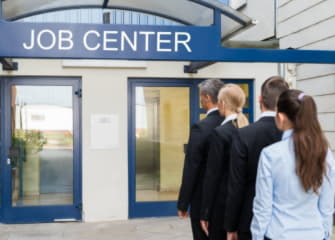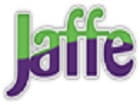
Image source: Getty Images
Talk about a dire projection.
It's no secret that the coronavirus pandemic has battered the U.S. economy. But it could take longer than expected for the situation to improve dramatically.
In April of 2020, the U.S. unemployment rate rose to 14.7% -- its highest level on record. And while it's since come down to 6.7%, that's still worlds higher than where it sat in February 2020 -- just 3.5%.
The problem, of course, is that the pandemic is nowhere close to over. Until then, businesses can't run at full capacity. Businesses are therefore still shedding jobs, fueling a cycle of people having less money to spend, which in turn affects businesses. It's a lousy situation, and one that's unlikely to improve for years. In fact, the Congressional Budget Office (CBO) projects that U.S. unemployment rates won't return to pre-pandemic levels until 2024.
That CBO report, however, does not account for one key factor -- President Joe Biden's proposed stimulus package, yet to be voted on. If that plan goes through, we could perhaps see a faster economic recovery -- and a swifter decline in the jobless rate.
Biden's aid plan
Biden is proposing a $1.9 trillion stimulus package designed to pump more money into the economy and help the jobless stay afloat. He's looking to send out a round of $1,400 stimulus checks, boost unemployment by $400 a week, and extend those unemployment benefits through September.
Republican lawmakers have already voiced concerns that Biden's aid package is too generous. They're calling for more targeted stimulus checks -- either limiting aid to the jobless, or lowering the income thresholds under which people qualify. Single tax filers earning $75,000 a year or less were able to collect a full stimulus payment under the first two rounds that already went out. The same held true for married couples filing jointly who earned $150,000 or less. And many of those with earnings beyond these thresholds were still eligible for a partial stimulus payment. It's worth noting that higher earners tend to save their stimulus payments rather than spend them. In fact, Opportunity Insights estimates that households with incomes above $78,000 will spend only $45 of the $600 payments they received.
Biden has said he's open to lowering the thresholds for stimulus eligibility. But handing out checks to people who technically don't need the cash does serve an important purpose -- it can pump money into the economy. When consumers have more cash available to spend at businesses, it increases those businesses' revenue. That, in turn, can save and create jobs. As a result, while lawmakers may not be too keen to fill the bank accounts of people who are still doing fairly well financially, sticking with the current income thresholds for stimulus payments could have a positive impact.
Of course, that impact comes at a cost -- and Republican lawmakers have made it clear they feel a $1.9 trillion price tag is going overboard on a relief plan. But if the public doesn't receive sufficient aid, the current economic crisis could drag on much longer than anyone wants it to, and it could take years before the jobless rate gets back to previous levels.
Top credit card wipes out interest until 2022
If you have credit card debt, transferring it to this top balance transfer card can allow you to pay 0% interest for a whopping 18 months! That's one reason our experts rate this card as a top pick to help get control of your debt. It'll allow you to pay 0% interest on both balance transfers and new purchases until 2022, and you'll pay no annual fee. Read our full review for free and apply in just 2 minutes.






